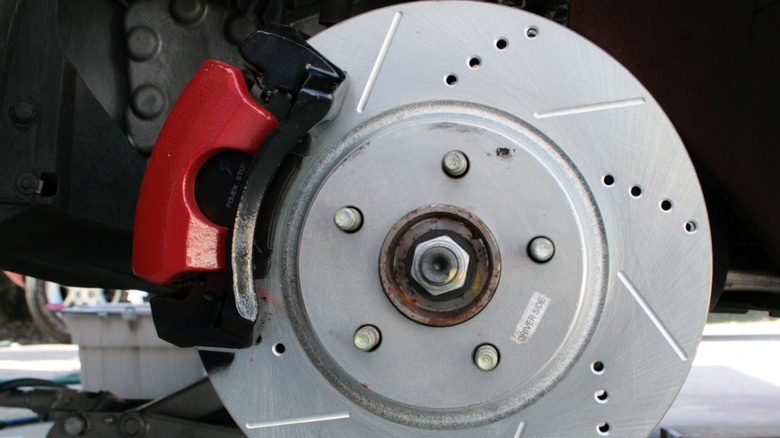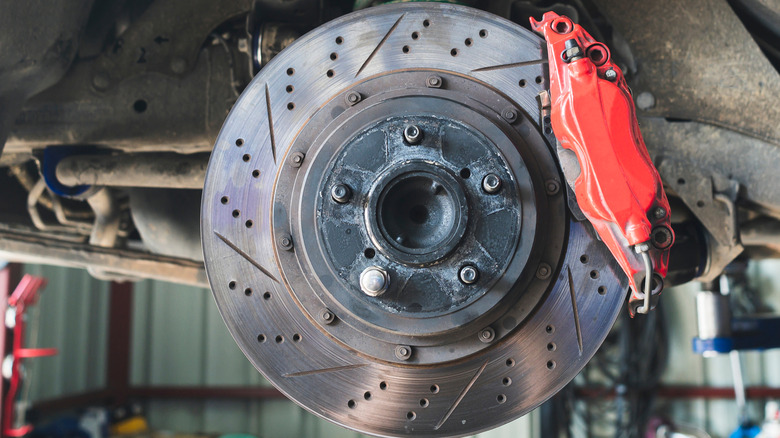Are Drilled And Slotted Rotors Good For Daily Driving?
A lot of people don't realize it, but upgrading your braking system with new brake rotors is one of the most crucial adjustments you can make to your vehicle. By doing so, you'll drastically improve your car's braking performance and your overall safety. However, when it comes to replacing your brake rotors, there is one thing that tends to stir up interest and confusion: drilled and slotted rotors. Now, you'll likely find drilled or slotted rotors (or a combination of both) peeking through the wheels of sports cars and high-capacity towing vehicles. This is because they feature holes and grooves that are not just for looks, but also to enhance brake performance, especially under certain conditions (say, extreme heat).
But since they are better-suited for frequent hard stops and aggressive applications, can they still handle typical daily drives like highway cruising and school runs? In a nutshell, yes, drilled and slotted rotors can be used for daily driving. However, the perks might not be as noticeable as you think, and even worse, they might do more harm than good. In fact, when used in daily driving (where performance is not a must), they can crack over time, resulting in costly replacements. They might even shorten the lifespan of other brake components, including the brake pads. This is particularly true for those who are not used to pushing their vehicle to its limits (for instance, like towing a heavy trailer).
Why are drilled and slotted rotors not ideal for daily driving?
You might be tempted to equip your car with drilled and slotted rotors, but it's best you resist this urge if your vehicle does not tow heavy loads. Sure, these rotors will definitely give your car a sportier look, but they'll likely lead to concerning mechanical issues. One major problem that can happen is accelerated brake pad wear. Ideally, slotted rotors will sweep away debris and gas during aggressive braking. While this will create an extra biting surface for brake pads to contact, it will increase pad wear. This means you'll need to replace the brake pads more frequently, which will translate to high maintenance costs over time.
Apart from that primary concern, there's also the risk of warping the brake rotors if used in suburban school runs or stop-and-go traffic. After all, slotted rotors have a bad reputation for developing cracks, especially when subjected to constant heat cycles without the airflow of high-speed driving that is supposed to cool them properly. In addition to cracking, they're also on the expensive side, and if you're not used to pushing your car to its limits, they can be overkill. Plus, that audible whir or hum sound they produce might not be welcoming, especially when you want a quiet, comfortable ride.
Overall, drilled and slotted rotors can cost you more money if equipped in a non-performance car. So, unless your daily driving includes towing campers and aggressive braking, a smooth rotor will do the job just fine.

